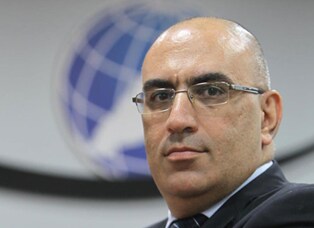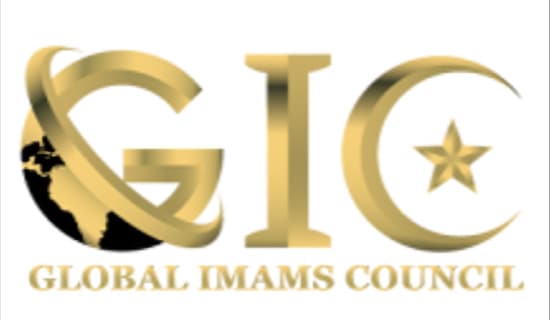On August 31, 2021, Iranian President Ebrahim Raisi sent a letter to Hizbullah secretary-general Hassan Nasrallah thanking him for his words of congratulations upon Raisi's election to the presidency and praising Hizbullah and its activity, which, he said, "is no longer confined to Lebanon and Palestine." In his letter Raisi compared Hizbullah to a tree that produces fruit -- young jihad fighters and "the blood of the martyrs of the resistance" -- and called Hizbullah "the hope of the entire Islamic nation" and a regional element whose influence is such that "no political, military or security element in the region or the world can ignore it." He added that Hizbullah "can constitute a unique political model operating according to the religious principles and the directives of Iran's Supreme Leader Ali Khamenei."[1]
This letter evoked a response from Charles Jabbour, head of the media and communications department of Samir Geagea's Lebanese Forces party, known for its opposition to Hizbullah. In an article he published in the Lebanese daily Al-Jumhouriyya, which is identified with the party, he wrote that Raisi's letter proves once again that Hizbullah receives its orders from Iran's Supreme Leader, forms an integral part of Iran's Islamic revolution and acts to promote Iran's goals, one of which is to transform Lebanon from a civil state into a religious one. Jabbour stressed that this contravenes the Lebanese constitution, which defines Lebanon as a pluralistic civil state. Therefore, he said, there is no way to coexist with Hizbullah and maintain a stable country in its presence. According to Jabbour, Raisi's letter describes Hizbullah as a tool for establishing the Islamic nation and for confronting Israel. This, he said, belies the claim that Hizbullah has been marketing for years, namely that it is fighting Israel in order to defend Lebanon's sovereignty, and shows that Hizbullah is actually fighting Israel as part of the great Iranian program.
It should be noted that this article is part of the growing criticism voiced against Hizbullah by its opponents inside Lebanon, which regard it as a tool of the Iranian regime which violates Lebanon's sovereignty.

Charles Jabbour (Source: Al-Jumhouriyya, Lebanon)
The following are excerpts from Jabbour's article:[2]
"The letter Hizbullah secretary-general Hassan Nasrallah received from Iranian President Ebrahim Raisi in response to [the former's] words of congratulation upon [that latter's] election to the presidency is significant in many ways. Its importance lies in the fact that it underscores what is already known and presents the Iranian perception of Hizbullah, this time in statements by the Iranian president himself…
"What does [this] letter include?… First of all, [by stating that Hizbullah is the hope of the Islamic nation, the letter] clearly indicates that that the Islamic nation relies upon the Islamic resistance, i.e., upon Hizbullah, to realize the program of the Islamic nation… But this role contradicts the Lebanese constitution, as well as the pluralist character of the state and its historical role.
"Second, [Raisi's statement] that 'in accordance with the political instructions of the Exalted Imam Khamenei, the Islamic resistance [Hizbullah] can constitute a unique political model operating according to the religious principles…' indicates two things. First, that the Islamic resistance, i.e., Hizbullah, receives orders from Imam Khamenei, namely from outside Lebanon, which contravenes the [Lebanese] constitution, the role of the state and [Lebanon's] sovereignty. Second, that Iran is interfering in Lebanon's affairs and openly calling to establish a religious regime in [the country], when Lebanon is a civil state and any attempt to change its identity is [in fact] an attempt to perpetrate a coup…
SUPPORT OUR WORK

"Furthermore, Raisi stresses [in his letter] that the Islamic resistance is not confined to a limited area [region, i.e., "Lebanon and Palestine," as Raisi wrote in his letter], which means that he does not recognize states and their sovereignty. The phrase he used [in the letter, namely], 'the geographical [scope] of the Islamic resistance,' has many meanings, the most prominent of which is that this resistance has a geographical [scope] of its own that does not recognize the existing geographical [national boundaries]. This is part of its ambition of [establishing] the Islamic nation… In other words, the role of the resistance is determined by Tehran. This is known, of course, but the public declaration [of this fact] is important, and has further significance, as follows:
"1. The decision that Hizbullah has a central role in the ambition of establishing the Islamic nation originated in Tehran.
"2. Hizbullah's main role contravenes the Lebanese constitution and the existence of Lebanon as a fait accompli.
"3. Hizbullah is an integral part of the Iranian program and revolution. Its source of authority is in Tehran and that is where its decisions are made.
"4. Hizbullah's decisions on Lebanese affairs are made by [Hizbullah] itself, whereas the decisions regarding the Islamic nation and [Hizbullah's] role in spreading the [Iranian] revolution are made exclusively by Tehran.
"5. Hizbullah draws a distinction between its temporary role in the domestic Lebanese arena and its strategic role of Islamizing Lebanon.
"6. Hizbullah's inner beliefs and orientations are Islamic and contravene the civil character of the Lebanese state and the existence of Lebanon as a fait accompli.
"Also conspicuous is the way the Iranian president addresses Hizbullah's secretary-general, [namely, as] 'my dear brother, Hujjat al-Islam wal-Muslimin[3] Sayyid[4] Hassan Nasrallah'… This indicates Nasrallah's important place in the chain of command of the Iranian revolution…
"Raisi ascribes no importance at all to Lebanon. He sees it merely as Hizbullah's sphere of influence, not as an independent entity, and focuses exclusively on Hizbullah's role as one of the fruits of the Iranian revolution. [This is evident from the fact that] he wrote in his letter that 'the role of the Islamic resistance, namely Hizbullah, in ensuring security [and] confronting the state-terror (of Israel) and the takfiri terror [i.e., of extremist Islamic organizations that accuse fellow Muslims of heresy] has turned this revolutionary jihad-fighting current into an influential element in the regional equations, so much so that no political, military or security element, including even global powers, can ignore it'…
"In light of all the above and in light of Raisi's letter to Nasrallah, the question is this: How can a state be built and how can coexistence and stability be maintained in the presence of a political group [i.e., Hizbullah] that believes in a religious [Shi'ite Iranian] program that fundamentally contravenes the Lebanese program and forms an integral part of the Iranian revolution...
"Raisi's statements refute the narrative Hizbullah tried to market after the Syrian army withdrew from Lebanon [in 2005, namely] that its role is limited to resisting Israel and establishing a balance of terror vis-à-vis [this country] so as to defend Lebanon's sovereignty – when [the fact is that] its confrontation with Israel is part of the Iranian program. In order to ease the Lebanese pressure on it, Hizbullah had no choice but to make the excuse that its weapons are meant to deter Tel Aviv, which cannot be deterred with the ordinary weapons [of the Lebanese army, especially] since the U.S. refuses to arm Lebanon...
"Now that the Iranian president has once again highlighted what was already known – Hizbullah's Iranian identity and its religious program – we can once again ask the questions: Is it possible to reach understandings with a party that does not believe in Lebanon, which promotes a program that is larger than Lebanon and which seeks to change the character of the Lebanese regime from a civil rule into a religious one -- especially considering that [Hizbullah's] weapons are an organic part of [Iran's] revolutionary and ideological program? The answer is unequivocal: there is no way to reach any understandings with Hizbullah. The upshot is that the conflict will go on and on, and each phase will look different [from the last], until Hizbullah manages to change Lebanon's character and role and turn it into an Islamic state. Alternatively, perhaps the domestic or foreign opposition to [Hizbullah's] program… will compel it to turn back and accept Lebanon's historical role, its neutral identity, its sovereignty, its very existence as a fait accompli and the fact that the state is an arena shared by all Lebanese."




